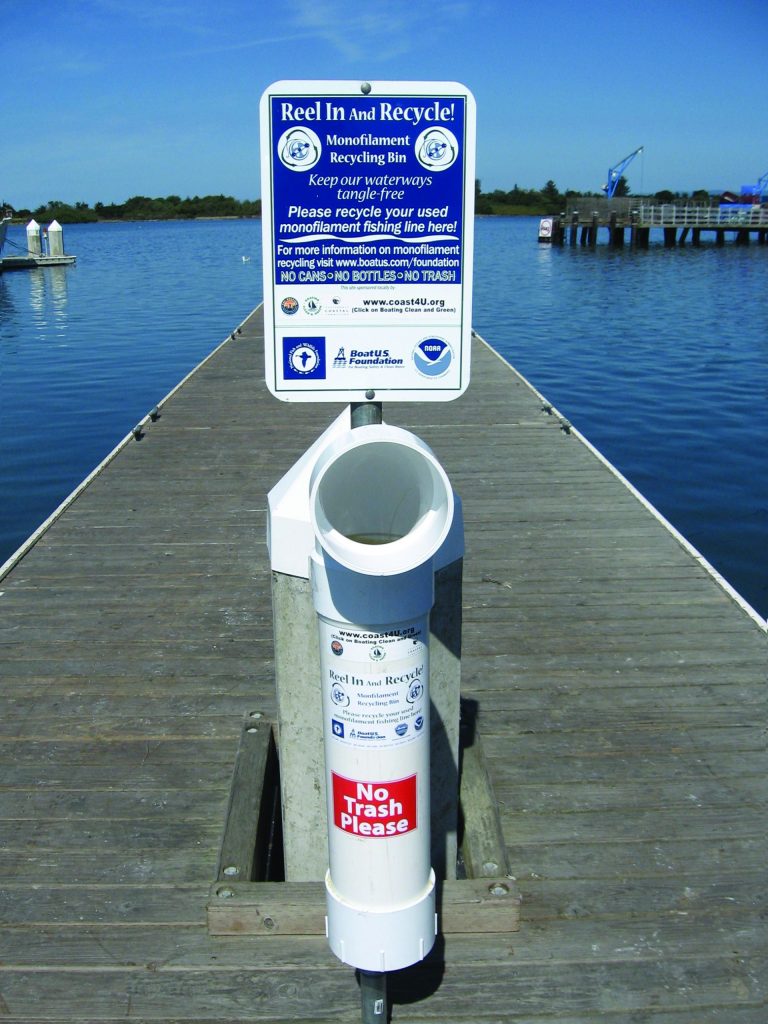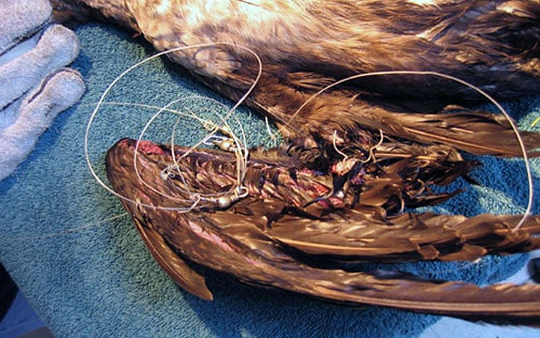
Monofilament, the type of fishing line made of a single strand of plastic (versus multi-strand or braided fishing line), was introduced in the late 1930s and quickly became a popular choice for bass anglers. It’s relatively inexpensive, less visible underwater, and more flexible than multi-strand lines. On the downside, monofilament line purchased in 1930 would still exist in the year 2530 if thrown in the trash. That’s right, the polymer mix used to make a mono line takes 600 years to degrade in a landfill. Even worse, monofilament discarded in the environment causes numerous hazards to birds, aquatic life and mammals that ingest or get tangled in it.

Coordinated by TAMU’s Texas Sea Grant College Program and Texas A&M AgriLife, the Monofilament Recovery and Recycling Program (MRRP) aims to educate the public about the negative impact of monofilament trash in the environment, as well as increase the amount of this material being recycled. The program relies on volunteers to collect mono line from recycle bins installed across the state. Since its launch in 2004, over 4,500 lbs. – around 6,000 miles! – of monofilament line has been collected from over 250 recycle bins in Texas.
The Piney Wood Lakes TMN chapter has been participating in the MRRP program since 2014. Led by Chris Clear, the PWL effort has resulted in the collection of nearly 90 lbs. of mono line from over 30 recycle bins around Lake Livingston and Lake Tombigbee. Through this work, our chapter is making a significant contribution to the quality of our lakes and the health of our local wildlife.
2024 was a strong year for PWL’s MRRP effort, with 6 volunteers monitoring 31 monofilament recycle bins and collecting nearly 5 lbs. of mono line. Plans for 2025 include the repositioning of several existing bins, and hopefully the addition of more bins. If you are interested in participating in this important conservation effort, please contact Chris Clear.



